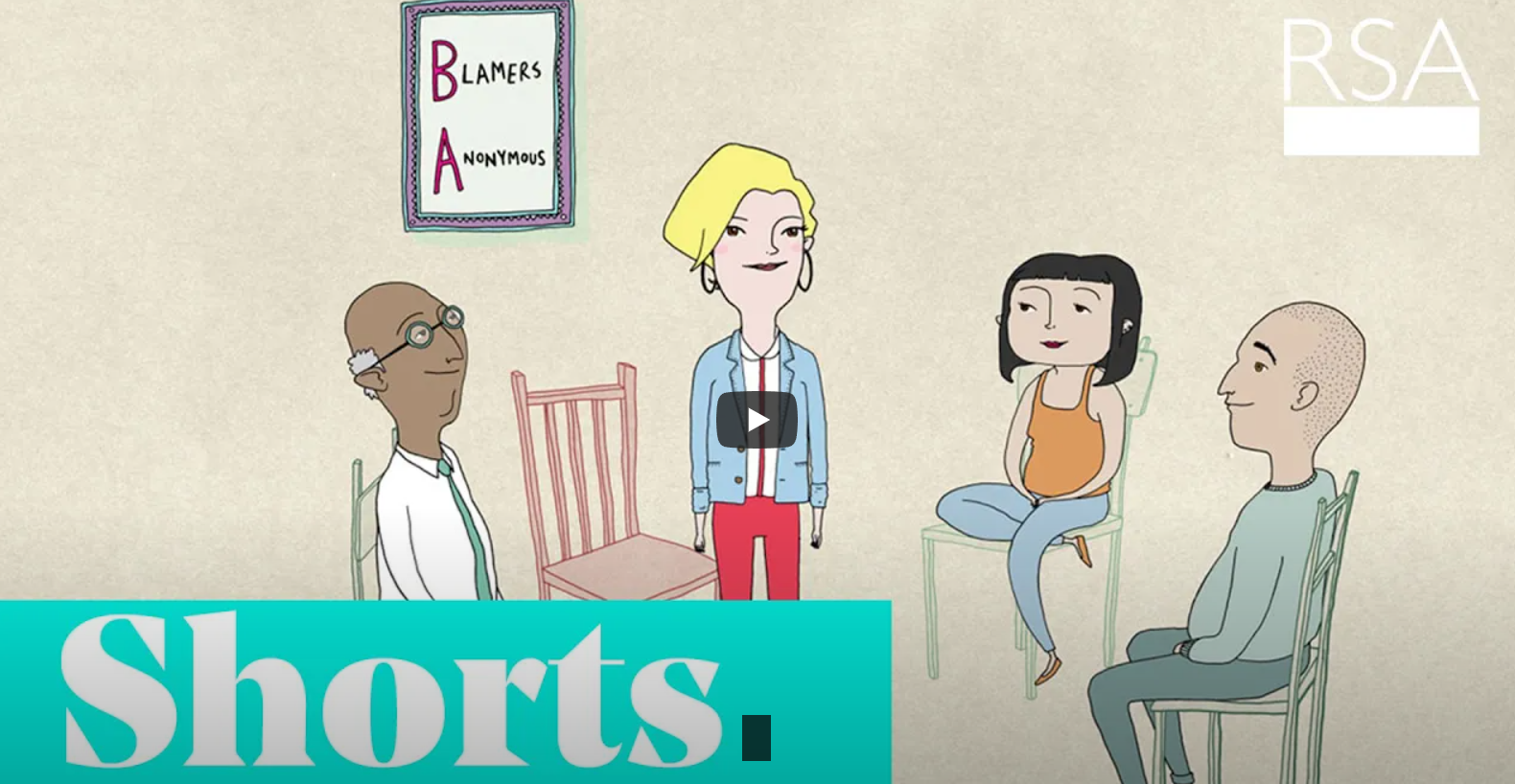Blog Layout
Remove Negativity From your Relationship
Kathleen Maiman • December 11, 2019

Hurtful words in a relationship can be like a drop of red dye in a glass of water that turns the whole glass pink. What starts out as a slip of tongue, a small slight from one person to another, sets a process in motion that slowly (or quickly) permeates a relationship and begins to define its tone.
It's easy to think criticism is a constructive process—one member of a relationship feels that they know the other in and out, and in making "suggestions" for how they might change or improve, they are merely helping them overcome their flaws and deficiencies.
"You're a handsome man," she might say, "but wouldn't you rather wear a dress shirt than those ratty T-shirts?"
He might say, "You're always blabbing to your friends on the phone, you should be quiet—read a book or something."
Sometimes this works. Perhaps the other person abides the advice and adjusts the behavior to make you happy. Other times this doesn't work: "If she doesn't like my clothes, I'm going to wear the outfits she hates most."
Criticism may not always take the form of words. It can be a touch, a glare, an eye roll, or two hands thrown up in the air. However it comes out, the message is that one person is superior and the other inferior. One person is up, the other person is down. It's an unpleasant feeling for the person down, a feeling that has its roots in the animal-like parts of our brain that’s sometimes referred to as our "lizard brain."
Harsh words can induce a feeling of anxiety. Anxiety, at its roots, is the nervous system responding to a stimulus of danger—the fight or flight response. The response of the criticized person also takes one of these forms: They may slink away, play dead in a submissive posture, or take on the accuser by fighting back.
Whether criticism is phrased in a gentle way or a cruel way, it comes from the same place of judgment. Unconsciously, the critic believes that their opinion is the "only" correct one. The way he or she looks at the world is the only reasonable way to see it, and if the partner, on some level, differs, they must have no sense, or taste—in fact, they're crazy! The other person, in a way, ceases to be a person, and is instead an object to be molded into the critic's (sane) way of looking at the world.
That said, a relationship without dialogue, without one person being able to express a concern, is also an unhealthy place. Suppressed thoughts and feelings lead to passive-aggressive behavior, or to the gradual dissolution of affection for one another.
The path out of this relational trap is to first take on an approach of zero negativity: for both parties to commit absolutely to refraining from put-downs and negative comments and behaviors. It's imperative that both members of a couple make a strict commitment to this approach. Not just temporarily, but always. In a particularly unhealthy relationship, this might, in fact, mean that both people have nothing to say to each other for a long period of time. In this case, the dynamic between the partners has become so toxic, so stuck in a loop of one-up, one-down behavior that it's violated both members' feelings of trust and safety.
Ultimately, though, all committed relationships contain a seed, no matter how small it may seem, of meaningful love and affection. Even if the approach of zero negativity leads to, essentially, a vow of silence, eventually the mantle of fear will dissipate and both parties will find the warmth toward each other that they once had. They will find things to say that are neutral and eventually positive. As the activated fear in the lizard brain diminishes, both people will begin to feel safe with one another, which is the primary and most important foundation of a healthy relationship.
The zero negativity approach doesn't imply that partners shouldn't be allowed to express concerns or desires for behavioral change in a relationship. It's all about the way it's presented. A hurtful comment out of nowhere or passive-aggressive put down is unacceptable. But one phrased carefully and delicately can lead to the desired effect.
One way to frame a safe conversation is to start with a statement like: "I'm having a hard time with something, and I want to share it with you. Is now a good time to talk?"
If it's not a good time for the other person to hear this, the requester must accept it. But the other person must also offer a time he or she would be more open to hearing your concerns. Knowing that you are going to express something critical takes away the element of surprise and defensiveness in the other person, and allows you to state your concern in a thought out, gentle way. It makes it much more likely that they will be willing to compromise and come closer to your side of the fence.
This is the second step in creating a healthy, constructive environment for change. But again, the very first step is zero negativity. It's a rule that's easy to remember but may be difficult to follow at first. In time, you'll begin to notice all the ways you were being unconsciously critical—making jokes at the other's expense, speaking negatively about them to others, thinking passive-aggressive thoughts. This awareness itself can motivate change.
I challenge you to give it a try—not a word, not a comment, not a glance in a negative direction.
Register for our Newsletter and receive a Free Love Chat Package
This Package Includes
- The 5 Steps to a Better Relationship
- Ongoing Monthly Relationship Tips
- If you want more love in your life, our relationship Love Chat Package is an easy cost-free first step.
Share
Tweet
Share
Mail

By Kathleen Maiman
•
March 17, 2025
Like many of us, I grew up in a family where there weren’t a lot of boundaries or assertiveness in requests. Rigid controlling behaviours were there instead of healthy boundaries. Here are some tips that I have learned about relationships and setting these boundaries. People have better relationships when there are healthy boundaries. And making requests, gives the other party the opportunity to meet us in our needs. Read on to better understand the difference between a request, a boundary, and an ultimatum.

By Kathleen Maiman
•
February 13, 2025
In the spectrum of romantic relationships, there are four levels. The first stage is a crush . In this stage, you feel warm inside while hanging out with a man or a woman who pays attention to you, looks sweetly at you, smiles at you or who is kind to you. You find that you like each other. This is a crush and it passes away with time. It doesn`t stay strong and there is no significant bond there. Adapted from Sri Krishnaji – Co-founder of Oneness and World Centre for Enlightenment. Author of Four Sacred Secrets: For Love and Prosperity

By Kathleen Maiman
•
January 27, 2025
A couple trudged into my therapy office, slumped down in their chairs and glared at one another. The tensions were high and the emotions were charged. This couple in their 40s had yet another fight on the way to their appointment. This fight was a continuation of something that started last night, but the truth was they had variations of the same argument for the last five years. “I’ve asked you to be kinder, but you speak to me with such contempt and attack me,” he complained. “But you’re doing things that upset me,” she counter-claimed. “What am I supposed to do?” They were at impasse and falling into this unhealthy dynamic over and over by making three common mistakes made by couples. What are these mistakes? Could knowing them transform your relationship?

By Kathleen Maiman
•
December 13, 2024
With the holiday season upon us, aliveness and energy is in the air. The season can also be fraught with frenzy and heightened emotions. It is not uncommon for couples to be overwhelmed or disconnected during the holidays, especially if one or both of the partners gets triggered by certain events. The added stress can create relationship strife and difficulties.

By Kathleen Maiman
•
September 18, 2024
Blaming is a natural human tendency. When something bad happens, the first thing we want to know is, “whose fault is it?” Dr. Brené Brown considers why we blame others, how it sabotages our relationships, and why we desperately need to move beyond this toxic behavior. Watch her short on blaming below.

By Kathleen Maiman
•
June 25, 2024
Under stress, we move into doing and saying things that are often unskilled and immature. These behaviours can cause harm to another and erode relationships over time. It is not that we are uncaring in those times; rather, the stress responses mean we have reached an unhealthy capacity or emotional limit.
Upcoming Programs and Retreats
More Reading on Couples Counselling
© 2025











